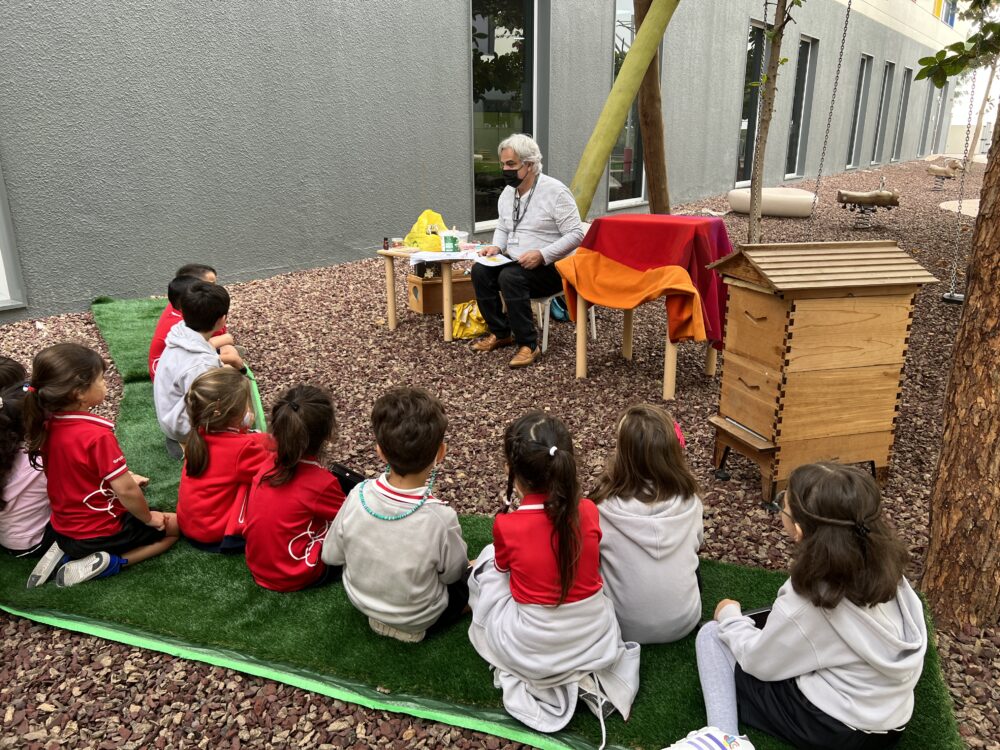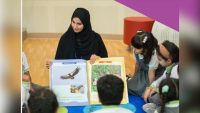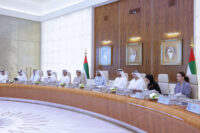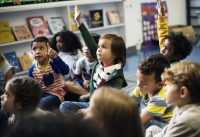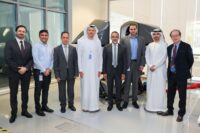While going carbon zero is still a challenging aim, UAE schools are incorporating sustainability into their curriculum and training in their efforts to drive action for a sustainable future
Dubai, June 05, 2022: The world is undergoing catastrophic changes to its environment due to climate change, making it one of the most critical problems facing the current and future generations. The time for introspection and debate has long passed almost two decades ago. The need of the hour is urgent, immediate action. In such a scenario, introspection of the role and responsibilities of our education system is crucial. Have our schools done enough to cause behavioural changes among students to encourage sustainability?
The success of any education programme can be measured in its ability to shape the ideas of students, motivate them to initiate actions that can solve their problems and train them to come up with innovative solutions.
According to latest research, successful outreach and education among just 16 percent of high school students in rich and developing countries could result in a reduction of about 19 gigaton of carbon dioxide by 2050. Results from UNESCO published in 2021 point to a lack of reference to climate change in the national curriculum of more than half of the 100 countries reviewed. In a review of 20 countries, a majority of teachers reported that their school had no action plan on climate change while a mere 20 percent of teachers could explain how to take action against climate change.
As per a UNDP report published in 2003, UAE was ranked as one of the highest emitters of per capita carbon footprint (33.6 tonnes per capita), second to Qatar. Since then the country has made significant strides in its initiatives to reduce emission of greenhouse gasses. In 2005, the UAE became one of the first major oil-producing countries to ratify the Kyoto protocol. In 2015 UAE affirmed its commitment at the COP21 UN Climate Change Conference /Paris Climate Conference, with a plan to generate 24 percent of its electricity from clean energy sourced by 2021. The UAE Net Zero by 2050 strategic initiative, which aligns with the Paris Initiative dedicated Dhs600 billion (about $163 billion) in investment towards renewable energy.
Meanwhile, efforts to incorporate key stakeholders, including schools and educational institutions, had started from the beginning of this century.
In 2009 the UAE launched the Sustainable Schools Initiative – an interactive and participatory approach among both public and private schools. The initiative aimed to achieve measurable outcomes in efficient use of resources and adoption of new teaching and learning strategies among students to achieve the set goals. Emphasis was laid on teacher training and enabling them to become facilitators, encouraging students to discover solutions independently.
The UAE has come a long way since the beginning of the previous decade in taking concerted actions to not only reduce its carbon footprint but equip its next generation by involving schools in its planned journey.
UAE schools have been encouraging the adoption of sustainability education into their curriculum, considering it a high priority. Schools have adopted Education for Sustainable Development (ESD) into their curriculum to address the urgent need to protect the environment and safeguard the planet’s biodiversity and natural resources.
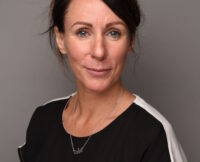
As Helen Milner, Primary and Early Years Sustainability Coordinator, Swiss International Scientific School in Dubai points out, sustainability is a pillar of National Agenda in line with the Dubai Strategic Plan 2030 and Dubai 2040 Urban Master Plan. “Sustainability in education is therefore a big agenda point for the UAE Government,” says Milner.
The ‘Emirati School Forum’, according to her, introduces a new pedagogical approach and aims at shaping a new stage of constructive and cooperative work to come up with visions, initiatives and ideas that enrich the MOE’s plans towards the development of sustainable educational work.
In 2020 the Ministry of Education (MoE) started implementing a sustainability plan by replacing regular school textbooks with environmentally friendly, 100 percent sustainable textbooks – reducing the total textbook printing cost by 23 per cent.
According to Milner, a large proportion of teachers at her school have gone paperless and use Teams and OneNote as their main platform to deliver lessons and for students to work.
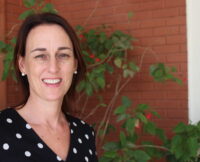
Emma Shanahan, Principal, Aspen Heights British School in Abu Dhabi, says that as per the emirate’s Irtiqaa inspection framework, schools are assessed based on students’ ability to initiate and take part in sustainability themes that relate to the local and wider world environment. “This has helped to guide how sustainability is embedded within our curriculum,” she adds.
Asha Alexander, Principal, GEMS Legacy School, Dubai and Executive Leader – Climate Change, GEMS Education says the Inspection Framework by the Ministry of Education has clearly stated expectations related to sustainability education such as community engagement, environment awareness and actions, as well as green initiatives taken by the school, which are evaluated based on the evidence provided by the school.
Professional training
Staff at her institute, she says, are trained through accreditation courses, internal and external continuous professional development courses on integrating climate-related awareness within the curriculum, and self-driven school-wide action research projects.
“Schools have taken the initiative through their Professional Development sessions to raise awareness and train teachers to integrate sustainability in the academic curriculum and beyond. Certifications include UNCC: Learn Climate Change, Eco-Schools, Global Schools, DEWA Conservation, and EduCCate Global, and we have also partnered with organisations to continue the professional development,” adds Alexander.

As per David Gerber, Primary School Vice Principal & Curriculum Coordinator, Fairgreen International School, the school regularly conducts certificate programmes to train its teachers. “A few years ago, a group of Fairgreen teachers participated in a course that provided a certificate in sustainable education. And currently we are due for another training to prepare for next academic year.”
Eman Hamshary, Head of Innovation, American Academy for Girls says her institute provides and supports internal and external professional development training and opportunities on a regular basis. “As part of the school’s innovation strategy, we provide peer engagement and support in situations where we co-teach to maximise outcomes. We plan annual events and campaigns led by our teachers to help our movement and vision of achieving sustainability in living and education.”
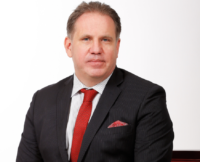
Timothy Roberts, Principal, Raffles World Academy, however, has called upon institutions to go in for more rigorous training to equip teaching staff. Referring to effective training provided to staff in sustainability education, he says the efforts are minimal. “It would be fantastic if there was investment at a national and international level that would extend and enhance the support the UAE government has provided.”
The school, he says, has a dedicated eco team, comprising students from all grades, a number of teachers and some parents. “This group is steered by our eco coordinator who is a senior member of staff.”
The green team
As Alexander points out, most schools have an eco or green team comprising staff and students – and sometimes even parents. “Every GEMS school has Health, Safety and Environment (HSE) personnel, who are responsible for providing timely environmental and sustainability support and guidance reporting to the school’s principal. Each of our schools has staff and students who are certified by external regulatory bodies as ‘Eco’ or Environment’ ambassadors,” she says.
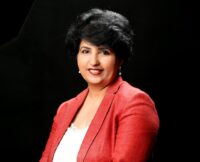
According to her, though teachers supervise and guide students through the related activities to raise awareness and act, students work independently “with vigour and passion”.
“Teaching and making connections to the Sustainable Development Goals not only provide foresight into the abundant careers and opportunities available but it also gives students a purpose to work towards creating a better future,” says Alexander, adding that be it calculating waste that can be converted into compost for a math lesson, SDG [Sustainable Development Goals] connections to environmental science lessons, soil erosion and wildlife extinction to SST lessons, or creative writing lessons, sustainability is integrated across all subjects.
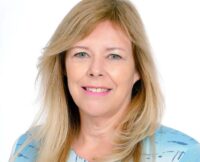
Developing the values of curiosity, confidence and kindness among students is key, says Sarah Brannon, Head of Prep at Brighton College Dubai. “Our community is underpinned by a profound belief in these three values. We strive to develop individuals who contribute positively as members of an interconnected society. Educating our students to know what they can do to make a difference and inspiring them to do just that is important.”
Brannon says education is all about preparing students for their future. “The aim needs to be not only to develop their knowledge around sustainability but also their values and motivation to act and make a difference. Ultimately it is the future of their planet that is in crisis,” she says, adding that teachers are role models and have the ability to raise these important topics with the students they teach on a regular basis.
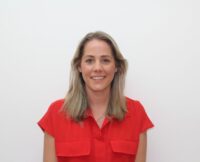
Louisa McCormack, Principal, Ladybird Nursery Al Barsha, says it is equally important to train staff about sustainability on how it can be inculcated into students right from the early formative years. “We understand that our new generations need to be able to respond appropriately in the future. Our role as early years educators are to ensure that we are preparing them for a lifelong attitude towards being sustainable,” she says.
“Staff are all trained in-house on the core values surrounding sustainability. Discussions surrounding the topic are frequent during staff meetings and ideas and resources are shared,” adds McCormack.
Sustainability concepts
Meanwhile, schools have developed some key concepts around which the sustainability curriculums are based. “We adopt the systems concept. The systems concept looks at the interdependent and changing nature of systems that support life on Earth. This concept also focuses on well-being and survival through the promotion of healthy social, economic and ecological systems,” says Milner.

Schools are resorting to certain subjects to weave in sustainability in the learning processes. James Stephen, Head of Sustainability & Arts Teacher, Repton Abu Dhabi says, “Certain subjects lend themselves to sustainability education more readily than others. Geography is an excellent vehicle to carry the message of sustainability, as we must be current in our teaching of sustainability within human and physical geography as well as science, as GCSE [General Certificate of Secondary Education] science now contains units related to sustainability.”
Similarly, theme-based approaches that directly relate to environmental aspects are being adopted by schools in order to give hands-on experience to students and understand the concept in person. “We have a thriving hydroponics farm that all our children visit regularly. This enables them to gain a better understanding of growing produce with these memorable, hands-on learning experiences,” says Shanahan.

As Hamshary points out, concepts and units in the school’s curriculum are structurally planned to include a reflection where students create thinking systems to connect to global issues and design solutions with the knowledge acquired from their curriculum.
According to Milner, there is no ‘correct’ pedagogy for sustainability education but there is a broad consensus that it requires a shift towards active, participatory and experiential learning methods that engage the learner and make a real difference to their understanding, thinking and ability to act.
Involvement of external stakeholders have further enhanced the ability of schools in providing action-oriented sustainability programmes. As per Alexander, the Expo 2020 Dubai has initiated futuristic innovations in the themes of opportunity, mobility and sustainability, and is building further momentum. “The active participation of students, staff and schools in the Expo Sustainable Learning Journeys has deepened the need for sustainable thinking and focused action.”
Local and global organisations are taking CSR more seriously and are collaborating with schools and colleges to impact the wider community. According to Alexander, international partnerships and community engagement is the key going forward.
Furthermore, schools in the region are aiming to become carbon-neutral in the future. Stephen says, “We believe that all schools and institutions will be aiming to achieve this, at some point. However, they believe that it is a tough goal to achieve.
“We know that it is a very challenging aim but it is important to have goals and it has been proven to be possible.”
– With additional inputs from Ritika

